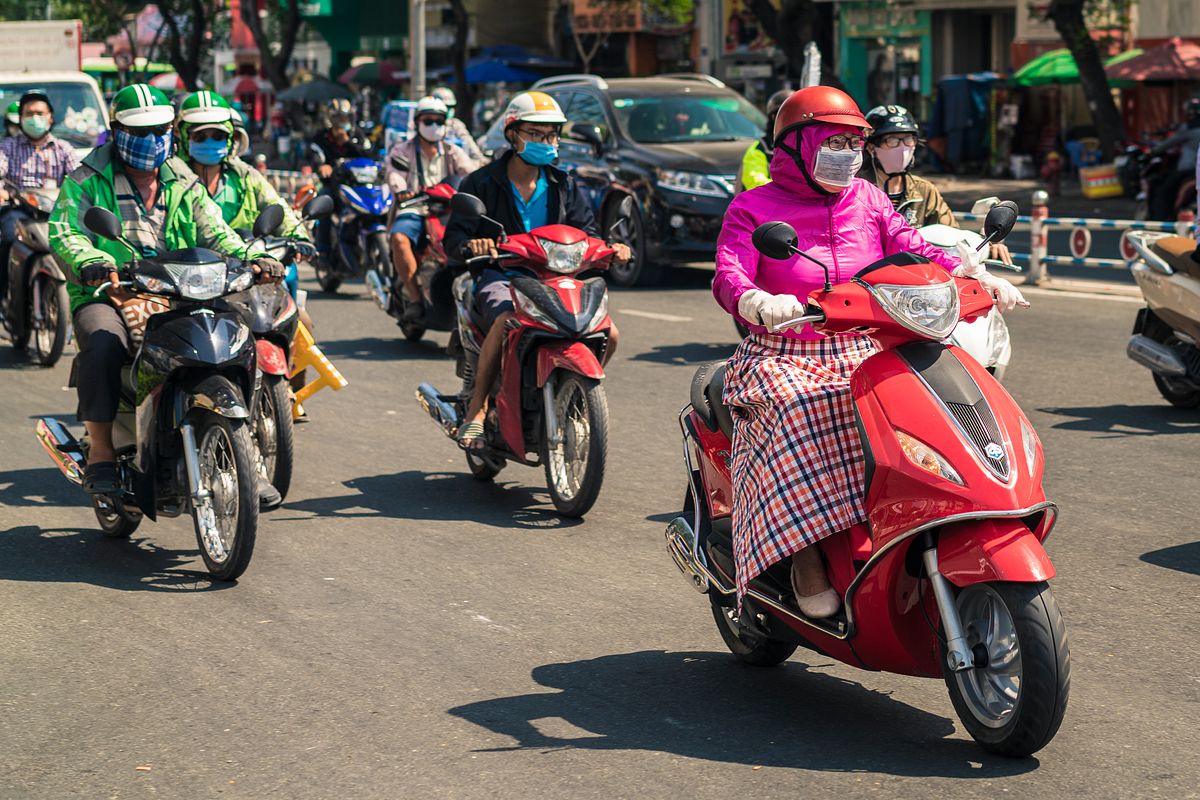In recent years, stories about climate change's impacts on the lives of Vietnamese people have been increasingly making the news.
According to the Ministry of Natural Resources and Environment, Vietnam is among the six countries most severely affected by climate change worldwide. In rural areas, extreme weather often manifests as natural disasters such as floods, while in urban areas like Saigon, prolonged heatwaves pose the greatest challenge.

Photo by Alberto Prieto.
As the dry season sets in, city dwellers find themselves battling record-breaking temperatures. Heat rises from the asphalt, blending with vehicle exhaust and musty fumes from narrow alleys to form dense and suffocating clouds of air.
In response, people rush to air-conditioned cafes and shopping centers, seeking refuge from the relentless heat. Those who must venture outside wrap themselves in jackets, masks, or hoodies. But not everyone has the privilege to easily escape the scorching sun.

Photo by Cao Nhân.
Among those most affected are informal workers in urban areas. Jobs like construction, street vending, motorbike taxi driving, or garbage collection often lead to prolonged exposure to the scorching sun.
The Vietnamese Ministry of Labor has advised outdoor workers to rest in cool places and stay hydrated to prevent heatstroke and reduce body temperature. While scientifically sound, these recommendations overlook the harsh reality that shade and clean water are often luxuries for those working outside.




Unassuming water coolers and messages of kindness. Photos by Cao Nhân, Trinh Nguyễn, Paul Christiansen.
A day’s worth of bottled water can cost as much as a light meal and is cumbersome for those constantly on the move. Yet access to free, clean drinking water is limited.
Fortunately, much like mushrooms sprouting after the rain, “grassroots” water sources have appeared during dry spells in every corner of the city. Bearing friendly messages like “Free drinking water” or “Cool water for travelers,” stainless steel containers and insulated buckets dot the sidewalks to serve as mobile wellsprings.

Anonymous benefactors. Photo via VnExpress.
Operating on a beautiful principle of “those with excess give, those in need take,” kind-hearted benefactors fill these stations with iced tea, filtered water, and sometimes even snacks. People can stop by to quench their thirst and cool down for free. There are no thank-yous, no observers, just thousands of silent exchanges happening daily.
This heart-warming practice is not new. In the rural southern regions of the past, residents would set up leaf huts, water jars, and coconut ladles along the roads. Travelers and neighbors could stop to rest and refresh. While the jars may now be replaced with modern materials, the spirit of local generosity continues to flourish.

Clay jars were often used to collect rainwater for daily use and to offer refreshment to passersby. Photo via Phụ Nữ Online.
In response to the severe heat, the city government is piloting more public water stations. Until then, these unmarked containers will continue their humble legacy: providing water and support to ease the hardships of daily life.

Free water pitchers provide blue-collar workers with much-needed refreshment. Photo via Dân Trí.
This article was originally published in 2024.
















